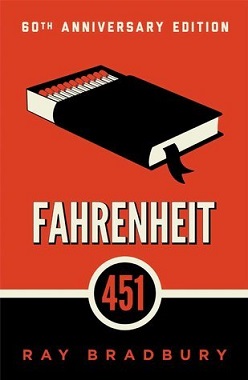
Courtesy of wikipedia.org
Two days after the November election, I sat down at a round table where people gathered for coffee at my retirement center. As I slid into a chair, I noticed the glum faces about me. Knowing the crowd, I understood the source of their discontent and muttered that after 163 years, the country continued to fight the Civil War. A man, a former college professor, was quick to correct me. “It isn’t about the Civil War. It’s a class war.”
I kept my silence rather than argue but wondered that this man of firm opinion had failed to question why so many dirt farmers in places like Alabama, Tennessee, and Mississippi had turned out for Donald Trump, a billionaire who’s never labored a day in his life. In my head, I corrected the college professor. What we experienced on November 5, wasn’t a class war. It was a caste war as outlined in Isabel Wilkerson’s Pulitzer Prize-winning book of the same name. In it, she describes caste as an artificial hierarchy that defines a person’s standing, respect, and access to resources.
The framers of our Constitution established that hierarchy–white men who had never doubted their hegemony over women and people of color. Unlike a class system which permits rising above one’s status, a caste system admits no alteration. I’ve often referred to it as an aspect of patriarchy.
Whatever it’s called, I know it when I see it. As a child about the age of ten, I overheard a conversation between my father, a farm boy from Indiana, and a black man as they stood together waiting for a bus in California. Seeing the button on my father’s lapel, the black man broke into a smile. “I see you are a Mason,” he said as he pointed to a similar pin on his collar. “I’m a Mason, too.”
“Yes, you are,” my father nodded as he took a moment to spit in the street. “But you’re still a Nig–er..”
My shame at the moment remains vivid and was recently ignited when I came across the words of Huey Long. …undoubtedly the easiest way to unite and animate large numbers in political association for action is to exploit the dynamic forces of hatred and fear. (The Soul of America, by Jon Meacham, Random House Large Print edition, 2018, pg. 234.) Diversity and equality are not friends of that ambition.
Many tyrants have called upon the same forces in their rise to power. Hitler comes to mind. But U. S. history is rife with men of similar inclination. Senator Joseph McCarthy was one of them, a man who was never shy about raising passions to destroy our democracy. Donald Trump is another.
Ignorance is the handmaiden of hatred and fear. I use the word “handmaiden” with intent because many women actively support the architecture of patriarchy, a caste system that exposes them to the same indignities as minorities. Specifically, I refer to white Republican women who voted for Trump in 2024 despite the cost of losing their reproductive freedom.
Many times in this blog, I’ve pondered patriarchy’s resilience and can find no explanation for it, neither biological nor cultural. Until I learn more, I attribute its survival to willful ignorance. When confronted by a fact that challenges support for the suppression of others, patriarchal defenders will dismiss that fact as a lie. The habit, over time, leaves their minds as impervious to the truth as a bowling ball is to rain.
I can offer no other explanation for why the country chose to elect a convicted sex predator and felon to our highest office — a person whose several cohorts during his first term were either convicted of crimes or under investigation. Nor can I rationalize why after the election numbers of television viewers shifted from the traditional media to Fox News — even though the owner admits his anchors lie to the public and cautions that programming should viewed as entertainment.
After November 5, many, like me, may feel they’ve been wrongfully committed to an asylum. Throughout history, others have been ensnared during similar episodes. Even so, those who honor truth must be resilient because ignorance impedes human progress. As for ignorance, it can be found in surprising places. During the Scopes trial, William Jennings Bryan, a man on the wrong side of history, admitted this about his state of mind. He was a man unused to thinking about things he did not think about. (The Soul of America, by Jon Meacham, Random House, Large Print edition, 2018, pg. 199)
As a former teacher, my instinct is to engage others and learn from them. Nonetheless, I will continue to oppose falsehood wherever I find it and hope others will do the same. As we enter what appears to be the darkest age of our democracy, let us follow the example of the Book People in Ray Bradbury’s Fahrenheit 451. Let us become guardians of the truth while mindful that …enlightenment among mankind is very narrowly dispersed. H. L Mencken (Ibid, pg. 200)
Footnote. Remember! Boycott Tesla
